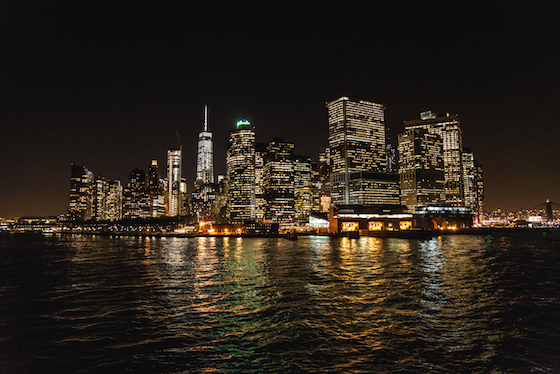NYC hotels fear slew of closures due to coronavirus
New York City hoteliers fear an upcoming wave of closures as the coronavirus pandemic has hammered occupancy rates, and they say a New York City Council bill mandating workers be kept after a property sale could deal the industry a further blow. The measure, whose sponsor said could be voted on next week, would extend to all hotel employees certain protections currently afforded to unionized workers. After a property is sold, the new owner would be required to keep all workers on the job for 90 days.
More from The Wall Street Journal

Upcoming China holiday may mean bookings for Macau
China’s October 1-8 “golden week” holiday will come as a relief for Macau’s struggling casinos and hotels, as Chinese tourists are expected to travel to the gaming destination after restrictions for visitors from across the mainland are eased from next week. Initial hotel bookings are positive for the former Portuguese colony’s economy, which depends heavily on mainland Chinese tourists. Five out of the 23 hotels tracked by Morgan Stanley have been fully booked for the first five days of October, compared with 16 during the golden week holiday last year, according to a report by the U.S. investment bank released this week.
More from the South China Morning Post
Insurance ruling favors small U.K. firms
Small British businesses have been thrown a lifeline after the High Court ruled some insurers should have paid out for losses caused by lockdown. Judges ruled that the disease clauses in some business interruption policies should have meant they were covered. Following lockdown, a host of businesses had to close and many looked to insurers to cover their losses. But many insurers disputed the claims, arguing policies were never meant to cover such unprecedented restrictions.
U.S. occupancy: 13-week upward trend
Fueled by leisure travel, week-over-week, U.S. hotel occupancy trended upward for 13 consecutive weeks — from a record-low of 21% the week ended April 11 to a high of 50% for the week ended August 15, according to data from Horwath HTL. Sustained economic recovery is unlikely until COVID-19 has been successfully contained, Horwath says, and absent an effective vaccine, few expect corporate, group or international demand to increase sufficiently to offset the slight-but-downward trending changes in leisure demand.
… But U.S. performance down slightly
U.S. hotel occupancy decreased slightly from the previous week, according to the latest data from STR.
September 6-12 (percentage change from comparable week in 2019):
Occupancy: 48.5% (-30.2%)
ADR: US$98.99 (-25.5%)
RevPAR: US$47.96 (-48.1%)
Occupancy for the week prior was above 49.0%, lifted by the recent U.S. Labor Day holiday weekend. For the week ending September 12, demand was 1.6% less, at 17.7 million room nights sold. The highest occupancy markets were those housing displaced residents from Hurricane Laura and western wildfires, with Louisiana North (77.2%) and Louisiana South (76.8%) showing the highest levels in the metric. The Oregon Area (73.7%) and California North (73.3%) markets were also among the top five highest occupancy levels for the week.
Aggregate data for the top 25 markets showed lower occupancy (43.2%), but higher ADR (US$101.10) than all other markets. Three markets reached or surpassed 50% occupancy: Norfolk/Virginia Beach, Virginia (58.8%); San Diego, California (57.5%); and Los Angeles/Long Beach, California (56.7%). Markets with the lowest occupancy levels for the week included Oahu Island, Hawaii (21.1%), and Orlando, Florida (31.6%).
Marriott Bonvoy taps U.S. national parks for marketing
Marriott International’s travel program Marriott Bonvoy entered into a marketing partnership with the National Park Foundation, the official nonprofit partner of the U.S. National Park Service. Bonvoy members will get discounted rates for stays at Marriott’s 406 properties located near national parks, as well as the option to redeem points for annual passes and to donate points to the National Park Foundation. The website will also provide travel tips and inspiration from Marriott Bonvoy Traveler, offering trip planning guides from local experts.
Travelers look to stay in a single place for longer
Recent search trends from Booking.com indicate that various types of travelers are increasingly looking to stay in a single place for longer. To respond, the travel platform recently introduced a way for its property partners to implement weekly and monthly rate plans. Travelers have opted for homes and apartments more often in recent years, with the COVID-19 pandemic accelerating that trend, according to Booking.com. In the second quarter of this year, about 40% of Booking.com’s new bookings were for alternative accommodations.
